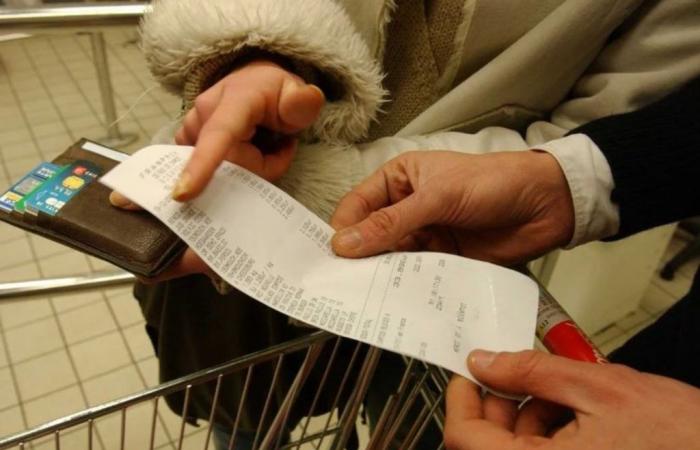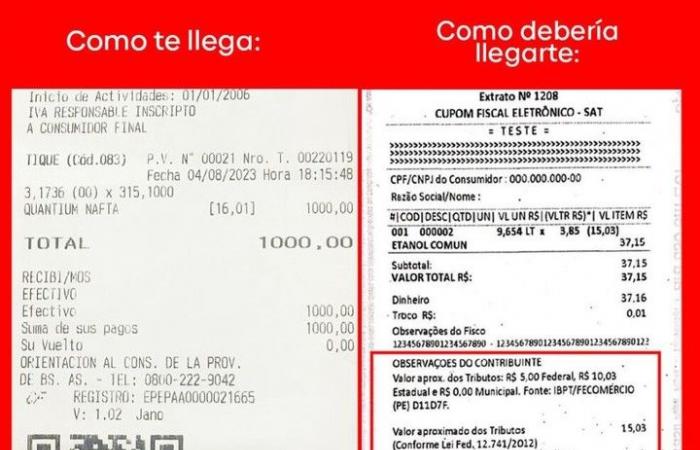With the approval of the Bases Law in the Senate, the project advances “consumer tax transparency regime” that proposes include in tickets, invoices and vouchers issued throughout the country the breakdown of the taxes paid by the consumeras already occurs in the contracting of tourist services abroad, such as air tickets and hotel stays.
The initiative – which is driven by Matias Olivero Vilapresident of the NGO Logic and was supported by the president Javier Milei and other officials such as the Minister of Security, Patricia Bullrich– He received a half sanction in Deputies. But being included in Title VII of the fiscal package of the Bases Law, must return to the Lower House for treatment. If sanctioned, It will come into force on January 1, 2025.
“For the purposes of the parliamentary process, it will return to Deputies due to its inclusion in the Law on Palliative and Relevant Fiscal Measures. It is expected that it will be ratified. It should not have major changes because the Chamber of Origin cannot take that attribution, it must insist on the original proposal or accept the Senate’s changes. And the consumer tax transparency regime remained unchanged in Wednesday’s debate. If the law is approved, it comes out“, he advanced to Clarion Olivero Vila, who considered that “It is unsustainable that for 50 years we have had a shameful law that systematically hides taxes”, in reference to article 39 of the VAT Law, which has prohibited since 1973 from showing this tax to the consumer.
In May, deputies of the radical bloc presented a project to discriminate VATwhich the Government considers an initial step, but insufficient, since This represents only about a third of the tax burden. “84% of Argentines are unaware that the biggest expense we incur is taxes. There is no country that applies up to five taxes on the final amount, with an incidence of up to 50%”, argued Vila, a lawyer and accountant who was inspired by the model that Brazil appliesthrough law 12,741, since 2012.
The Brazilian law was the result of the society behind: an NGO leading the process, more than 1 million signatures and 135 business and third sector organizations supporting the change.
What tickets should look like
The project encourages merchants and suppliers to discriminate the tax burden at the national, provincial and local level, including Value Added Tax (VAT), Gross Income, municipal taxes and other taxes, which must be presented separately. That is, on the one hand the final amount and, on the other hand, the net price without the tax burden. In state services, urges not to use the word “free”but the description “free access paid for by taxpayers’ taxes.”
Thus, with 94% of citizens who want to know the taxes they pay in the country that has the highest tax burden in the worldaccording to a survey of Polyarchythe proposal aims to understand what taxes are applied each time a good or service is purchased.
That way, search “ensure transparency in transactions with clear and accessible information” and is protected by the National Constitution and the Civil Code. The first provides in its article 42 that “users have the right to adequate and truthful information“, so the Government considers that “it encourages citizen awareness and a transparent and honest system”. Meanwhile, the second highlights the obligation to provide detailed information”.



